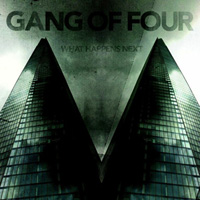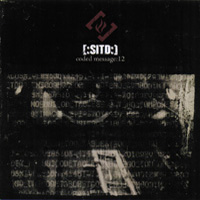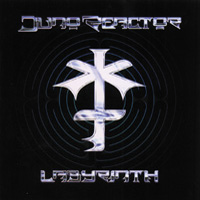 Juno Reactor
Juno Reactor
Labyrinth (Metropolis)
An interview with Ben Watkins
by Wa
A child of the punk movement, he has for the past two decades become as synonymous with electronic music as producer/innovator Brian Eno, and his incorporation of live performances from some of the world’s most accomplished musicians on traditional instruments has placed him in the rarified pantheon of artists like Peter Gabriel and Paul Simon. His new release, Labyrinth, is a patchwork puzzle of life, death, hope, and dreams. Like Clark Kent to Superman, Ben Watkins lives in the shadow of his alter ego, Juno Reactor.
How did you get involved in music, and what is your musical background?
When I was four or five, my father exposed to me a lot of classical music. I began lessons, learning the piano, violin, and classical guitar. Then, when I was around 14, I became more interested in rock music. (laughs)
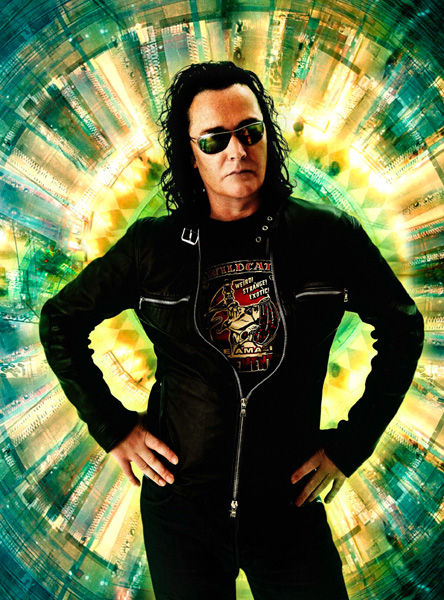 How did you get started in electronic music?
How did you get started in electronic music?
I was interested in many different types of music, and I tried my hand at quite a lot of things. It was only when I got involved with electronic music in the early ’80s that I felt at home.
I noticed Budgie (of Siouxsie and The Banshees) appears on your new release. How did he end up playing drums on “War Dogs”?
I’ve been wanting to do something with him for ages. I’d done some remixes for them over the years, and I wrote a track (“I’m Here… Another Planet”) for them that was used in the film Lost In Space. I produced a track for their album, so he was already around. The weird thing is, I hadn’t really planned on recording a 3/4 track, but when he came to the studio, it just seemed appropriate. It’s great having acoustic drums. I get kind of bored with electronic drums and electronic everything. To have more players with real drums can make the recording that much more exciting.
When one thinks of a Juno Reactor record, one can’t help but notice all of the virtuoso musicians you work with. How do you find these wonderful musicians from all over the world?
(laughs) It’s sometimes a bit daunting! You kind of wonder who the heck you can persuade to come over to do some work, and then there’s also a long period of time where you’re looking for different musicians who could bring something new to the table.
Who did you work with on Labyrinth, and how did you meet them?
One of the new people I worked with was Diane Charlemagne, who sang with Goldie on his track “Inner-City Life.” I met her through a friend of mine, Danny Brighton, whom she’d been working for. She sang on the song “Giant.” When you meet Diane, she seems like a really nice and quiet person, and when you hear her sing, it’s just like blowing your head off. (laughs) I really wanted some other voices on the record. In fact, I was working with an Israeli woman, Jasmine Levi, who’s a fantastic singer, but her management company completely fucked the whole proceedings up, so I had to take her off of “War Dogs” and rewrite the whole song.
Eduardo Niebla, I’d heard him play on Deepak Ram’s album. Deepak, who played on my previous album, Shango, introduced Eduardo to me. What I love about Eduardo’s playing is that it sounds really simple, but when you try to play it, it’s like fuckin’ hell! It’s deceiving, like a beautiful fly-eating flower. It draws you into its petals, and then it cuts you up. A brilliant player! That is what I really love about great players. It’s not that they show off their skill as a virtuoso, it’s that they do what’s really great for the track.
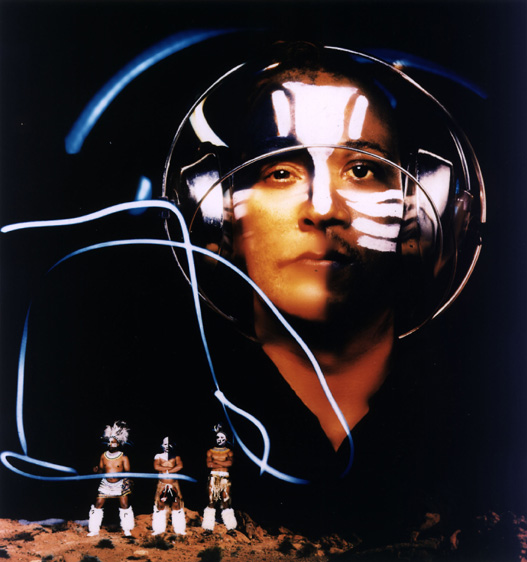 I’m very impressed with the work you did for the Wachowski Brothers on The Matrix series. I presume working with Don Davis, who scored the film, was a pretty incredible experience?
I’m very impressed with the work you did for the Wachowski Brothers on The Matrix series. I presume working with Don Davis, who scored the film, was a pretty incredible experience?
It was definitely a learning curve I won’t soon forget. It felt like I was going to film-scoring school for three months. You had to learn very quickly.
How did you and Don develop the tracks “Mona Lisa Overdrive” and “Navras”?
I was asked to go out there to write the music for the freeway chase scene. I’d done some film work before, but nothing really prepared me for that job. I’d gotten some ideas together, and the Wachowski Brothers told me what they wanted. I had meetings with them for two or three days, and then they took me over to meet Don. The first meeting I had with them, I played what I had, and they started talking right away and I had to write down all of these notes. I think I had about four or five pages of notes. Add this… do this here… my brain was just falling out of my ears at this point. And I don’t think Don was prepared to work with an electronic musician. From his early reticence to the final outcome, I think he was very happy, and we ultimately got along very well.
For the freeway chase scene, I took my classical ideas in with me. I’d sample people like William Walton and these other sort of composers and do it my way and add those elements through samplers. And then Don would take it and say, well, we could do this, but we’d have to do it in a different way. If I was too heavy-handed, Don would lighten it up. Don did all the orchestral stuff, and what the Wachowski brothers wanted me to do was go in and look at it, because all the other people who’d tried it had failed. They wanted something heavy.
So they brought in others before you?
Yeah, they’d had The Prodigy try it, and then Fluke tried it. They didn’t like any of those. They may’ve asked other people and didn’t like those others either. And then they asked if I wanted to have a go at it, and I did.
Was it Don, The Wachowski Brothers, or you who is a fan of William Gibson novels?
You mean with “Mona Lisa Overdrive?” (laughs) It was a cheeky thing on my behalf. In meetings, I kept on calling it “Overdrive,” and I could see that it was raising eyebrows. I didn’t give the complete name right up until the end. They had no idea it was going to be called “Mona Lisa Overdrive.”
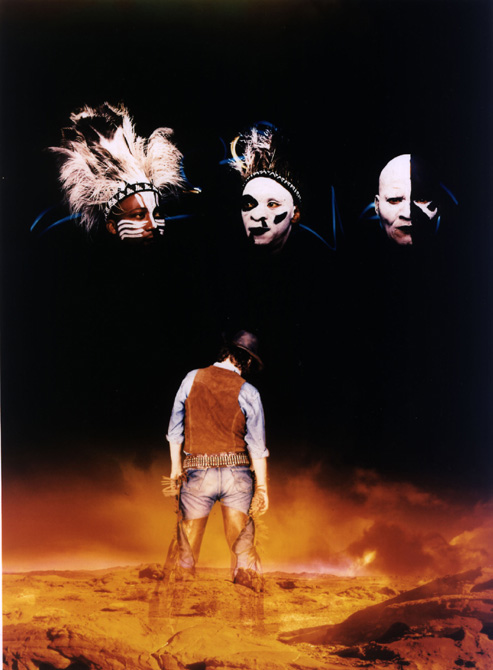 And the use of the Upanishads in “Navras”?
And the use of the Upanishads in “Navras”?
The Brothers and Don Davis wanted the Upanishads to have a place in the film. Most of “Navras” had been written before I came in. They wanted that whole section rewritten for the end titles, and, at first, they wanted it to be two and a half minutes long. And I thought, Jesus, I can fart and it can last two and a half minutes. (laughs) They liked what I did with the two and a half minutes, so they said why don’t you try four? It took me a few more days to get it to four minutes. And they liked that, and they kept asking me to add to it. So it went to six minutes, and then to eight, and then to nine minutes. And that was it.
“Navras” is one of those tunes you don’t come across very often. It writes itself. It just keeps coming out. It’s a product of the great people who’re playing on it, you know? Lakshmi Shankar came down and sang and did it in half an hour. And then Deepak came down, and he was enjoying himself, so he stayed for a week. It was brilliant having him around, because he made the whole place light up. My favorite thing about the time I was working on those two films is that I had such a great time with all the people there. They were all fantastic people. None of them had massive egos. Really easy to work with, and no nightmares.
How is your live show developing?
Good, so far. I think it would be quite funny trying to do “Navras” live. I don’t know if it’s possible. I think what we’ll have to do is use the musicians there with me and see if we can adapt a version that meets the requirements without leaning on the computer too much. (laughs) I don’t know though, it’s pretty entertaining, that one.
Do you find that European audiences are a little more open-minded to new ideas than your American audiences?
I’ve always had a really good thing in America. I’ve always found Americans to be really open-minded about things. I’ve almost found the opposite in Europe. In England, say, it’s a dance thing, and there’s sort of a mafioso-like control over their little type of dance music. It all became very snobby. In America, it didn’t seem they had all that snobbishness. But, then again, America is a massive place. I think in England and Europe, the reason you get that kind of response is because they’re trying to protect their areas. That’s why I’m so glad that the whole music industry has changed so much. That whole DJ culture is just dead here. They’ve been crying for a change, because it’s just boring. People who didn’t know what they were listening to would promote really horrible music.
Will you be bringing an opening act with you?
I’m not sure. I’ve heard that we might be doing some dates with Meat Beat Manifesto and maybe DJ Shadow.
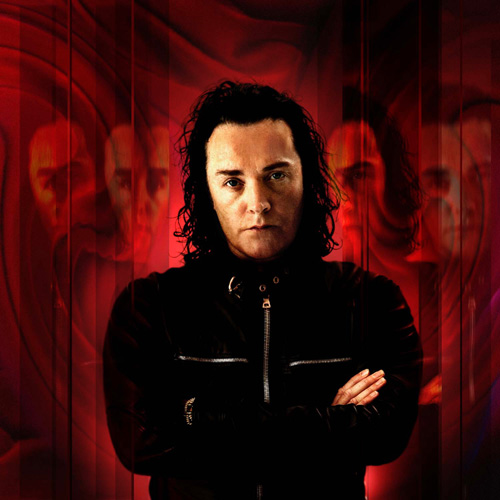 Have you worked with either before?
Have you worked with either before?
No. I think our agents are looking at creating a really good package, something that will really allow people to come out and have a great time. That’s what I hope happens, that whatever tour we put together will be really great for the people who travel. People travel so much further in America than they do here in Europe.
There’s a real prevalence recently of artists re-releasing CDs in SACD 5.1. Have you considered doing this?
I bought a mixing desk, specifically to be in 5.1. But when it came time for the album, I didn’t really bother. I don’t know why, I think it was because I really didn’t have the time to get into that whole frame of mind. And it didn’t seem like the record company had much of an idea about how to market that kind of thing. All of the tracks we did for The Matrix films were all mixed in 5.1. I’m also working on a Japanese animation film which will be in 6.1. So, I’m learning about surround sound through the film work. Maybe I’ll do something in the future. We’ll have to see.
What’s the name of the Japanese animation film?
At the moment, it’s called Shinkoo. It’s by the director who did the short film “Beyond” on The Animatrix. It’s funny, because that was my favorite one. A real story. It’s about 20 to 25 minutes long. I think they’re going to bundle it with some other animation things for theatre. What’s strange about it is that they haven’t told anyone about what the story is. I’m working from black & white storyboards without motion. It’s the complete opposite of working on The Matrix. I am able to dictate pretty much what I want. The director hasn’t really engaged in much conversation at all, the collaboration elements are completely open.
With all the different changes in the music industry, particularly digital files, how do you feel about them and their legitimate and illegitimate uses?
I really like them. I’ve got my iPod and I like having access to all of that music at the touch of a button. It’s a little confusing at the moment as to how musicians will make money from it and whether they’ll really sell anything or just license their work. What I love about it is that it really buggers up the whole music industry. And that’s a good thing. Maybe it will stop all this rubbish the music industry pays for and promotes. If there’s no money in it, then they won’t be able to promote so much crap.
(www.metropolis-records.com)

